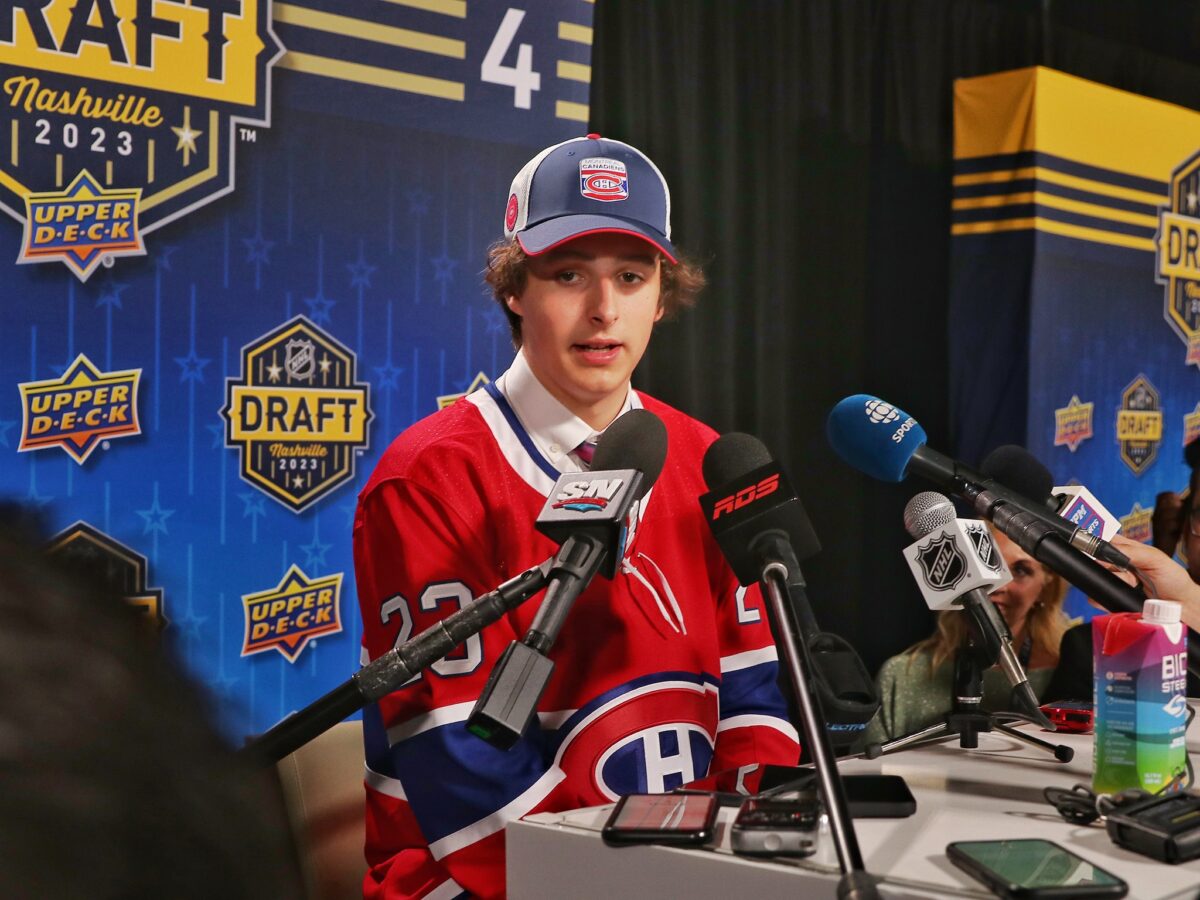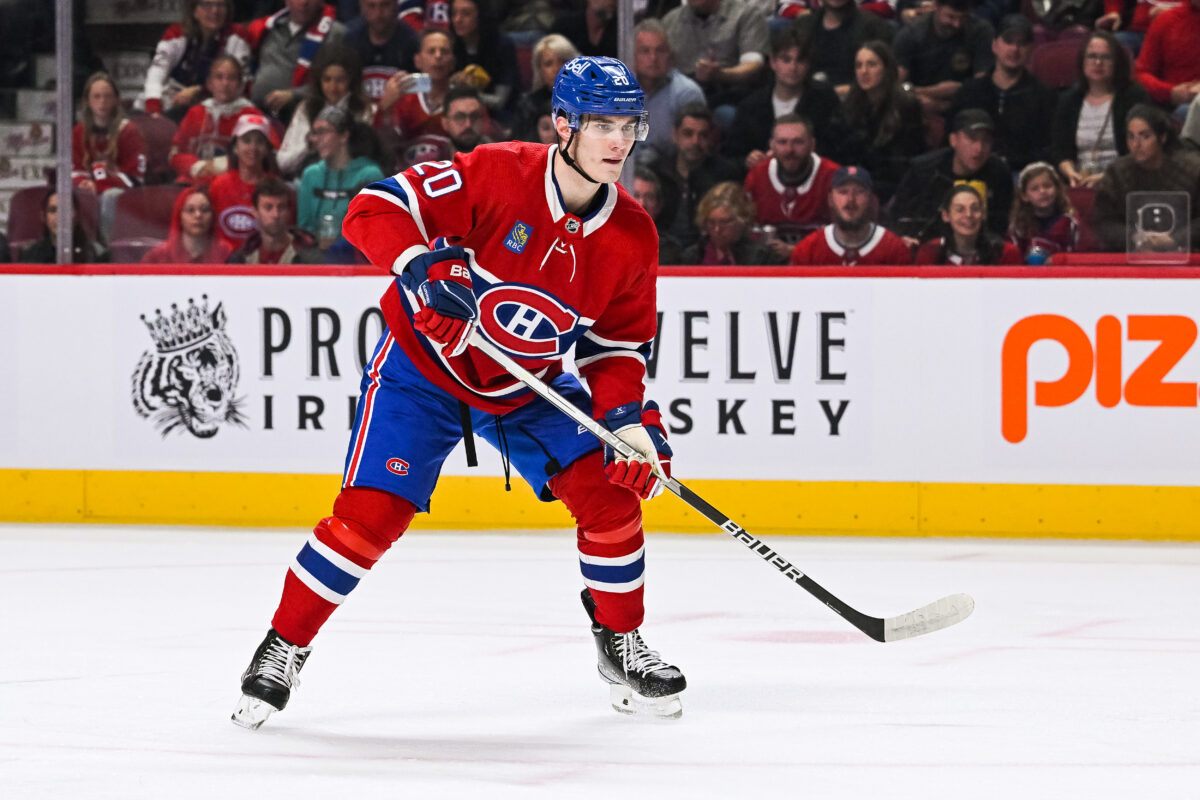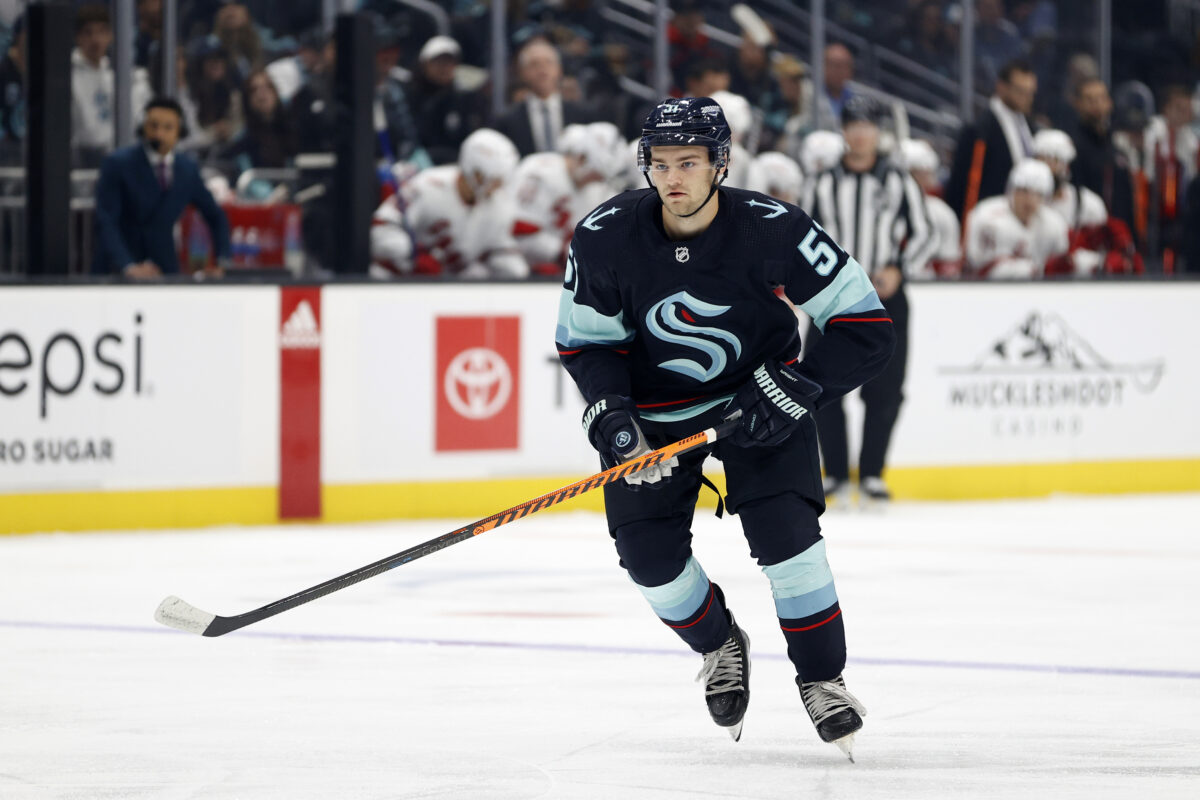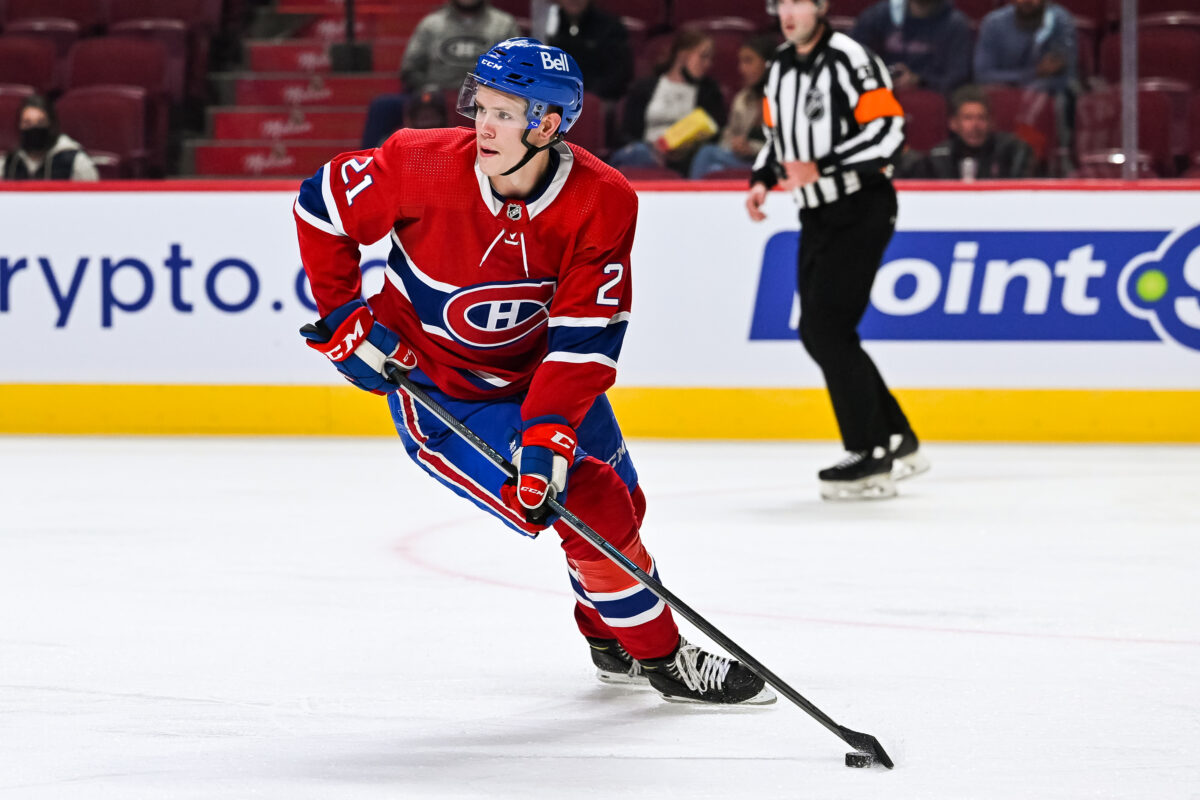Like the selection or not, Montreal Canadiens defenseman David Reinbacher is undeniably polarizing. What shouldn’t be is the similarly undeniable notion that, once he arrives in North America, he should start off in the American Hockey League (AHL).
Related: Canadiens Draft Reinbacher with Shades of Kotkaniemi Pick
Now that Reinbacher’s season is over in the National League in Switzerland, as is his loan to EHC Kloten. Having signed his entry-level deal soon after he was drafted fifth overall by the Canadiens last July, he’s eligible to come over to North America and debut in the organization, but the question is where.

Actually, it really only is a question in the sense it needs to be answered officially. Logically, based on a variety of factors, the easy answer is with the Laval Rocket in the AHL as opposed to having him start directly with Canadiens in the NHL. While he would be ineligible to be demoted to the AHL for a potential playoff run were he to start with the Canadiens, that’s not the biggest reason. The biggest of those factors is the team’s recent experience with Juraj Slafkovsky, the Habs’ first-round pick, first overall actually, immediately before Reinbacher in 2022.
Reinbacher vs. Slafkovsky
Slafkovsky’s selection was far from without controversy itself, with many believing centre Shane Wright would have been the right pick instead (of a winger). Of course, having traded for Kirby Dach at the 2022 NHL Entry Draft soon after having picked Slafkovsky, the Canadiens ended up addressing their need for a top-six pivot in another way, effectively freeing them up to take the power forward.
Nevertheless, it’s hard to deny the parallels between both selections, because of the scrutiny each of them have faced. There’s a good argument that Slafkovsky never should have started his own tenure with the Canadiens in the NHL and that the AHL was the better choice to have him acclimate better to the North American game.

Obviously, Slafkovsky’s career has turned a corner. Since getting another chance on the top line with Nick Suzuki and Cole Caufield, his production has impressively taken off like, ironically, a rocket. He may have just 36 points in 67 games this season so far (10 points in 39 games as a rookie), but, in his last 36 games, he’s scored 12 goals and 28 points.
Now, some may have blind faith in the Canadiens and suggest Slafkovsky has only come on like he has because the team took their time putting him in a position to succeed. And, to be fair, Slafkovsky had gotten a few (short-lived) chances on the top line before his latest successful promotion there, pointing to him not having been ready yet.
However, the overwhelming evidence suggested Slafkovsky had been struggling in the NHL prior to that point, resulting in a lack of production, not the other way around. Furthermore, it took Slafkovsky a few games to start scoring at his current pace upon rejoining that line for a 4-2 win over the Seattle Kraken on Dec. 4.
Slafkovsky Struggles as a Rookie
The indisputable fact is, in part due to the team’s injury situation, the Canadiens showed more patience with Slafkovsky in that role this time around and that patience has paid off. The idea he should have been played in the AHL was largely due to the Canadiens themselves not having been ready to give him the ice time he needed.
With a minimalistic, 30th-on-the-team 12:13 per game as a rookie (below the likes of Chris Tierney and Rem Pitlick), it’s easy to see why he couldn’t produce at a consistent pace. Any opposing argument to the effect Slafkovsky should have started in the NHL simply because he was a first-overall pick was ridiculous.
It’s an argument that boiled down to vanity in that, “every other first-overall pick starts in the NHL, so Slafkovsky should too.” Truth be told, not every first-overall pick does, just admittedly the vast majority for better or worse. One example is coincidentally a defenseman, in Buffalo Sabre Owen Power (2021), who played at the University of Michigan in 2021-22 before ending the season in the NHL.
One could make a connection between Power and Reinbacher, as the latter is a defenseman too, but that would be disingenuous. The fact is, no two drafts are created equal, just like no two players are. Slafkovsky’s was generally accepted to be weaker overall. That’s reflected in how no other draftee caught on with their NHL teams until one season later (Slafkovsky arguably included). Hell, only a single other 2022 draftee played in their team’s first game in 2022-23, and that’s Wright with the Kraken, with him having since been an AHL mainstay.

People can argue between the chicken and the egg until the cows come home, regarding whether or not Slafkovsky has only come on like he has because the Canadiens managed him the way they did (or in spite of it). No one will truly ever know for sure. However, with Dach having gotten acquired at the 2022 Draft too, and the Habs eventually opting to have him ride shotgun on that first line (following the acquisition of Sean Monahan at centre later that summer), there was no room for Slafkovsky at the top of the lineup. That’s true with regard to Reinbacher too.
Canadiens Have No Room for Reinbacher
In fact, there’s no real room for Reinbacher in the lineup at all. Not only would he need to contend with fellow right-handed shots in David Savard and Johnathan Kovacevic, but also left-handed defensemen like Jordan Harris and Kaiden Guhle, who have moved over due to the logjam on their side on defense.
The Canadiens have played Guhle specifically beside Mike Matheson on the top pairing, as if he were a No. 2 defenseman. Guhle was only drafted in 2020 (16th overall). You’re not going to supplant Guhle from that spot just to give Reinbacher playing time. Putting an unproven prospect in the spot of another young player who has already begun to prove himself? That’s counterintuitive, to be kind.
That leaves two spots for Reinbacher, Savard, Kovacevic and Harris. Even if you trade Savard this offseason, Reinbacher is going to have to beat out prospect Justin Barron for playing time next season, as he’ll no longer be waiver-exempt. So, Reinbacher would be in the same position Slafkovsky was in 2022-23, without a hope in hell of climbing up the NHL depth chart with so many bodies above him.
Going back to Guhle, it took him time to earn the accolades he’s received, generate the assessments of his game to justify his selection at No. 16 back then. That’s how it should be. That’s how it should have been with Slafkovsky. That’s how it must be with Reinbacher. He has to prove he belongs, and he doesn’t automatically belong because of where he was picked. Thankfully though, the Canadiens have a built-in proving ground across the St. Lawrence River with the Laval Rocket in the AHL.

Convenient, that.
Like with Slafkovsky, there is no rush or at least there shouldn’t be. Expectations are high, because, when the Canadiens drafted Reinbacher, there was elite offensive talent still on the board, making it seem as though they envisioned him as developing into a top-pairing defenseman in time. “Developing” is the key term there. He certainly wasn’t a top-pairing defenseman then even based solely on the conflicting scouting reports regarding his ceiling. Furthermore, following a disastrous season for EHC Kloten, it’s not like he gained much ground if any.
Ultimately, Reinbacher must be placed in a position to succeed for the long term. The Canadiens may be tempted to get an up-close look at him. However, they should look at Slafkovsky and how he struggled and the resulting frustration on the faces of fans to realize fast-tracking NHL careers is akin to playing with fire.
The Canadiens got lucky that Slafkovsky has (seemingly) panned out so far. That same road may be paved with good intentions, but going down it with Reinbacher is the wrong course of action. His logical starting point is the AHL. The finish line is obviously in the NHL, but that’s a matter of when, i.e., when both he AND the Habs are ready. Not before.
